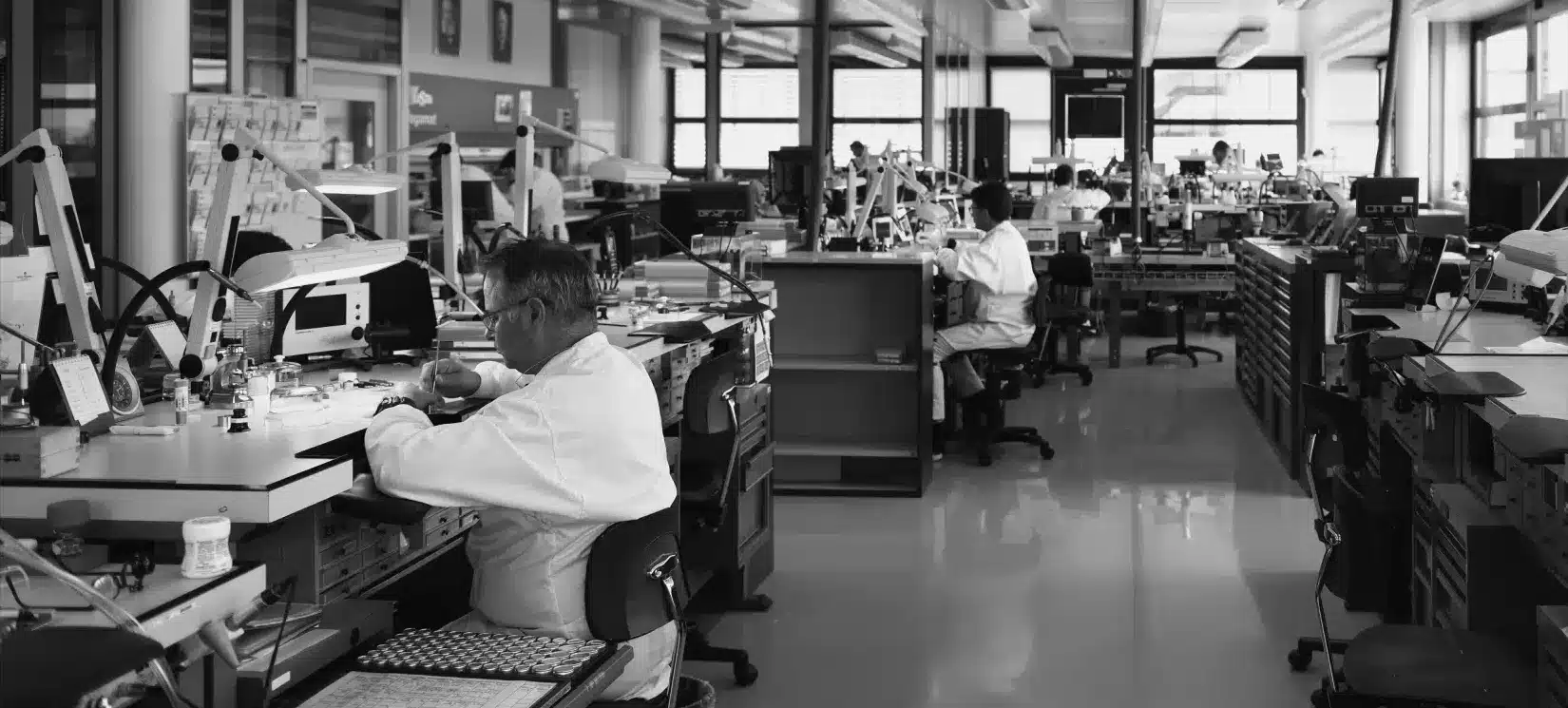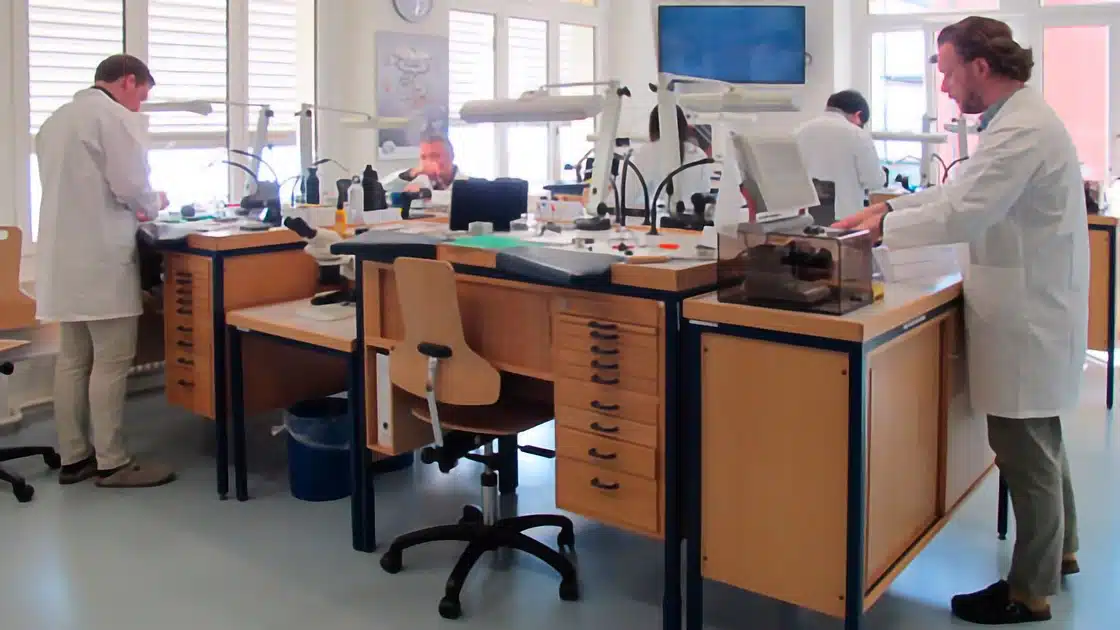Have you ever wondered what it takes to become a watchmaker or how much watchmakers make? You might be surprised!

Over the last few years, there’s been a significant shortage of watchmakers. On the flip side, luxury watches have never been more popular.
During the pandemic, the watch industry experienced a boom. Many opted for a watch as an investment. Others wanted to spend a little money on themselves.
But a shortage of watchmakers does create a problem or two. Have you recently sent your watch away for a service or a repair? If so, it may have taken longer than expected to get it back.
Watchmaking is not a job that anyone and everyone can do. This career path takes many years of specialized training and practice.
Traditional Swiss watchmakers hand their skills down the family line and provide training to new employees. But the industry simply needs more hands on deck.
Patek Philippe, for example, manufactures more than 10,000 timepieces a year. Its team of watchmakers, however, amounts to just 19.
In many respects, a small team of watchmakers and limited production can add to the exclusivity of a brand. That said, a manufacturer needs to ensure uninterrupted production.
How To Become a Watchmaker?
If you’re wondering how to become a watch repairer or a watchmaker, there are two ways: either by an apprenticeship or in a watchmaking school. Both have pros and cons.
Apprenticeship
1-on-1 training provides the best form of learning. Nothing is better than getting hands-on with a watch and learning with an experienced watchmaker in person.

Apprenticeships have been a notable feature of the watchmaking industry for centuries. It’s a tried and true system. However, as apprentices don’t increase profits, at least not for a while, it can be hard to get a watchmaker to agree to an apprenticeship.
Apprentices also have a limited view of the industry. They only see one watchmaker’s way of doing things.
Watchmaking School
Several luxury watch brands today run their watchmaking schools in-house. The benefit is that brands can instill in students their ethics and unique approaches to watchmaking. Unique processes, material manufacture, and age-old techniques can be explored while students are on the job.
Learning to become a watchmaker in a group setting with lots of theoretical hands-on work is certainly beneficial. This structured route means that an individual can learn from several experts in one setting.
Students also become familiar with Industry standards, along with cutting-edge practices.
(Below: the Watchmakers of Switzerland Training and Educational Program)

Having said all that, trainees often have to adhere to a standardized learning pace.
How Much Does a Watchmaker Make?
For independent watchmakers, salary is often reflective of how well their work sells.
For a watchmaker employed by a prestigious company, however, the starting salary is good. As with most jobs, as experience grows a watchmaker’s salary normally rises.
It can be hard to pinpoint how much matchmakers make, but It is thought that a watchmaker may make around $70-80,000 a year working for Patek Philippe, for instance.
The package is likely to be pretty lucrative compared to other competitors. That said, the annual salary of a PP watchmaker is still less than the price of one of its watches!
Rolex is another luxury watch brand that offers its watchmakers good pay. Those choosing a career path with Rolex can expect a $50k starting package with added industry benefits.
The job opportunities here, as one would imagine, are exceptional. The brand also employs unskilled watchmakers who focus on one specific part of the assembly line. This may include working with dial hands or cases only.

For many a watchmaker, however, the beauty of the job is about being at one with horology.
The tiny components required to make a watch work are all intricately assembled by hand.
Watchmaking is an art form; it takes time to ensure each process is carried out meticulously. It requires a steady hand, patience, and a passion for mechanics.
It seems obvious, but to gain a position in a brand’s watchmaking atelier, an artisan must show adaptability. For many collectors, there is a belief that the love of watchmaking is passed from the craftsmen to the wearer.
Conclusion: Watchmakers Are In Demand
Watchmaking is a profession that is constantly changing. New technologies and watches are emerging all the time.
It means that watchmaking is a highly skilled job, but it is also in huge demand.
The industry is at a shortage of skilled watchmakers, and this often reflects in lengthy repair times and production delays.
Many of the world’s top manufacturers train their craftsmen in-house and on the job.
As such, they get paid a pretty good wage. Entry-level watchmakers, once trained, can earn around $40-60,000 a year. Master watchmakers can earn much more.
So, think again the next time you look at your watch and remind yourself of its hefty price tag. It is the level of skill and the intricate craftsmanship that goes into a watch that makes it so expensive.
With luxury watches defying the odds, despite being labeled a “dying trade”, craftsmen have never been more in demand.
So, what do you think? Is watchmaking your calling?




Leave a Reply